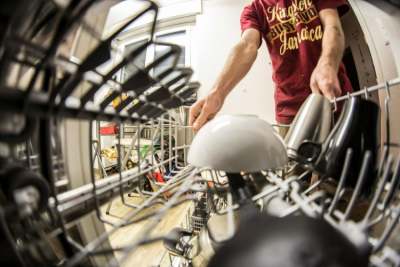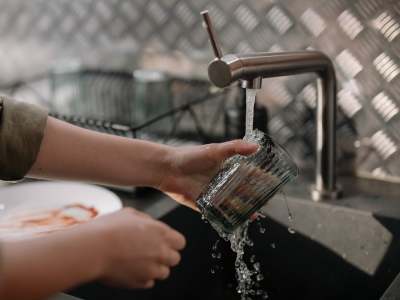Dishwashers, when used correctly, can be better for the planet than handwashing. This has taken a long time to sink in, perhaps because it seems too good to be true. It also depends on how you do the dishes by hand, and, which program cycle you use for the dishwasher. We look at this in more depth in the guide.
Doing the dishes isn't a task many people enjoy, and ethical consumers may worry about the energy and water use of dishwasher machines. We also might try to be more ethical by using eco friendly washing up detergent when washing up by hand, or by using eco friendly dishwasher detergents.
But what about dishwashers themselves? What eco and ethical choices are available?
Which dishwasher brands are in the eco shopping guide?
Dishwasher appliances occupy a big chunk of space in kitchens, with several brands filling that space: 35 are reviewed in this guide, yet over half of these brands are owned by just 5 companies (Bosch, Electrolux, Haier Group, Koç, and Whirlpool).
In this guide to eco dishwashers, we review the bestselling brands like Bosch, Beko and Hotpoint, as well as brands at both ends of the price range.
We look at the commitment by brands to energy efficiency and workers' rights, as well as investigating which companies have policies on use of conflict minerals. We also look at water use and how dishwashers can be more efficient that washing up by hand.
We also highlight ways to keep your current dishwasher going for longer with some maintenance tips.
In this guide some brands scored almost no points (out of 100), and whilst the top-scoring brands don't get really high scores, there are definite differences in ethics and eco options available if you are looking to buy a new or secondhand dishwasher.
How popular are dishwashers?
Since the early 1990s, dishwashers have had a ‘trickle up’ effect – year on year an extra 1 or 2% of UK households have chosen to have a machine do the washing up for them. By 2018, 49% of UK households had a dishwasher, so by now it's very likely more people have dishwashers than not.
Whether you're in a household with or without a dishwasher, how can you make sure you are being as eco as possible with your dish washing technique? We investigate what is best.




